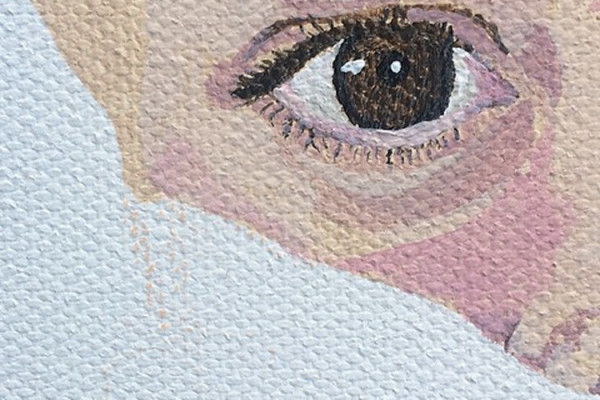Anorexia is a loaded, visceral word.
Anorexia.
Anorexia Nervosa, the term, was developed by Queen Victoria’s physician, Sir William Gull in 1873. Of Greek origin, it translates to “nervous absence of appetite.” Gull initially coined the illness anorexia hysterica—“hysterical absence of appetite”. That term only enjoyed a brief existence and was quickly abandoned as hysteria was, throughout the Victoria period, synonymous with a condition of the female. Back then they acknowledged that the illness affected both male and female, and the hysterical component was peripheral, rather than central to the experience of the patient.
I’ve kept my mouth shut for the good part of my life, sharing little, next to nothing about my experience of the illness. I felt that the term itself was pregnant, bursting, ripe with connotations. Pulling out such a loaded word when referring to my own experience of mental ill health—whether with friends, family or health professionals—always proved incredibly destabilising. So I didn’t.
Anorexia is associated with images of gaunt celebrities, of #thinspo and #proana. It’s women in active wear, sporting thigh gaps, large heads and alarmed expressions. The piety, the idea that someone would willingly subject their body to such cruel and ritualised deprivation is incomprehensible to most. This incomprehensibility, much like the unfathomable nature of suicide, imbues the illness with a kind of romance. It arouses curiosity and fascination in the other. It is forbidden to ask for intimate details, but one can’t help wanting to know.
When trying to understand, make sense of and recover from my experience the term anorexia as the primary referent became more of a hindrance than a help.
I didn’t talk about it or share much at all about this chapter of my life with others because in a culture of Google, acronyms and efficiency, labels serve a very important function. They exist to make communication more seamless and less nuanced. Anorexia, the label and the pool of knowledge, of symptoms, of shared understandings associated with and to it, pervert what the illness is and isn’t.
Anorexia belongs to the DSM, to university psychology classes and the internet. My experiences didn’t. Referring that sixteen years span as anorexia never felt resonant. I used it for other people’s convenience, but it never felt clean. There was so much more going on backstage. I used it because it was easier.
In using the term for efficiency, I avoided deeply personal and vulnerable conversations about my actual experience of the thing. It was a method for avoiding raw, unbridled vulnerability. Anorexia means anorexia, and using it, led people make up their own minds without me having to invite them in, to sit down and learn about the spectrum: the minute nuances, the motivations behind the ritualised starvation, compulsive body checking and punishing exercise.
That word for me, didn’t promote connection, broader conversations about mental health or support the debunking of the myths and untruths surrounding the illness. Anorexia didn’t reduce the shame and blame I felt towards myself for having been there either. I felt it increased it. I didn’t talk about it because I felt that it wasn’t simple, it was a story, layered, alinear, wayward. It needed time.
Where would I start? Where would I finish? Now that my thighs rub together, do I even qualify for the label? Will people think I’m making it up?
As I’ve gained weight, taken responsibility for my wellbeing and started to feel that sense of aliveness and hunger for experience that I can recall knowing as a primary schooler, I’m appreciating more and more that things are never simple and nor should they be.
Perhaps the biggest epiphany is this, if I spend my life pandering to efficiency, rather than authenticity, I’ll forever be left on the outside looking in.
Words Jess Phillips



